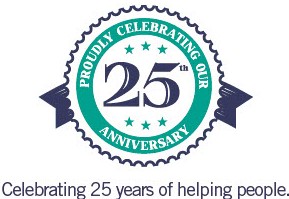If it sounds too good to be true, you’re probably right. Managing your debt is already hard enough without having to fend off scammers from luring you into their ruse. But now more than ever, online money fraudsters are ramping up their schemes and preying on vulnerable Canadians during COVID-19 because they know consumers are struggling to make ends meet and are seeking debt relief.
The good news is, there are a few telltale signs for detecting when there may be foul play. But before we dive into how to avoid these pesky scams, let’s explore debt settlements and debt relief options.
What is a debt settlement?
The only licensed individuals with legal and legislative authority to deal with your debt are Licensed Insolvency Trustees, using a Consumer Proposal. Other “Debt Settlement” types of companies advertise their service, but creditors are not legally bound to deal with them. They can try to negotiate on your behalf but will charge a fee to do so, and this fee is substantial and unnecessary. Generally, you will also pay this fee upfront even if they can’t get a reduction in your debt.
You may also try to negotiate on your own, but once again, creditors are not bound to accept your offer. When dealing with a Trustee, creditors only have their pro-rata share of power in the negotiations and are bound by the total number of the creditor votes. Basically, all creditors are forced to accept the proposal if the majority of creditors vote in favour of it. More than 95% of our proposals are accepted.
Other debt relief options
Suppose you don’t want to file a consumer proposal or bankruptcy and are looking for other types of debt relief. In that case, you can consider reducing your debt by applying for a consolidation loan through a bank (you will pay a higher interest rate) or the Credit Counselling Society of Canada and Money Mentors (Orderly Payment of Debts program).
With both of these agencies, you must pay your debts in full, and there will be interest charges. Only a Consumer Proposal can reduce the amount you have to pay and offers no interest or fees.
How to avoid loan scams
If you are looking at debt options, there are a few things to watch out for to avoid getting duped into a scam.
- They require you to pay upfront fees before your debts are settled.
- They make unrealistic promises. No one can promise you a guaranteed outcome. We can quote averages and percentages, but no guarantees.
- They tell you to stop talking to your creditors. Until you have dealt with your debts, you are required by law to be available to speak to them unless it is considered harassment. A Trustee will speak to them on your behalf.
- They talk about a fee to refer you to a Licensed Insolvency Trustee. You don’t need a referral to access a Licensed Insolvency Trustee.
- They pressure you to make quick decisions and don’t discuss all of your options.
- They don’t have a brick-and-mortar location. It’s cheap and easy to build a website and get a phone number to lure people in. If you can’t find a local address, be very careful. Licensed Insolvency Trustees are required to be licensed by the province and must have a location in the province you live in. Unlicensed predators can do whatever they want.
If your research on a debt settlement company shows any of these signs, sound the alarm and get away from them fast. Reputable companies will never require you to pay anything upfront before delivering a service.
It’s illegal to charge advance fees on a loan in Canada, no matter what name they call the fee. You’ll often hear terminology thrown around, such as “administration fee” or “credit protection,” to disguise the illegal charges, but no legitimate company will ask for a premature cut.
To get peace of mind, check Canada’s Better Business Bureau (BBB) to see if the company is legitimate and reliable. You can determine if a company’s records are clean and any customer complaints lodged against them on this website. You can also check out Google-certified reviews.
We may like to be told what we want to hear, but in the case of paying off your debts, tread carefully. If a debt settlement company makes grand, unrealistic promises without understanding your financial situation, get a second expert opinion, especially if they encourage you to cut ties with your creditors, which is suspicious behaviour. This often leads to extra interest and penalties getting added to your debt or being sent to collections without your knowledge.
How to choose a trusted company
- Do your research, talk to friends and family for referrals.
- Speak only to licensed professionals, such as a Licensed Insolvency Trustee.
- Search government sites for recommendations.
- Google Reviews
- Better Business Bureau
- Three Best Rated
- If it sounds too good, it probably is.
Before you sign any agreements, make sure you do your homework on the debt relief agency or credit counselling company. Pay close attention to their payment schedule and run a background check on their credentials. Licensed professionals will be listed as accredited businesses in the Better Business Bureau and licensed by the Federal Government.
Stop the financial struggle
If you’re stressed about your debts, our Licensed Insolvency Trustees at BNA Debt Solutions can set you up with a free, confidential appointment to walk you through your options to achieve financial relief, virtually or in person. We offer a range of debt relief options from budgeting, debt consolidation, debt management, and more. Book a consultation today.




